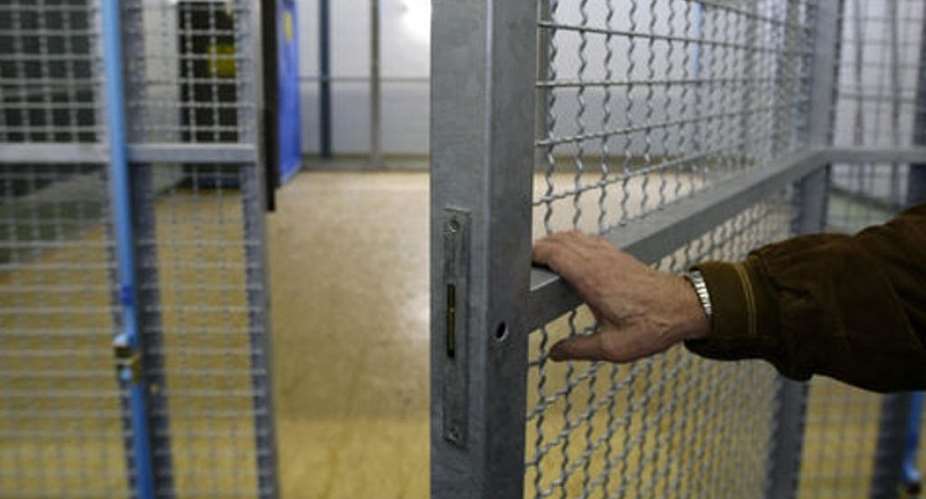Fifty-five percent of French people say they are in favour of the death penalty, the highest ever figure recorded since the poll was started in 2013. The Jean Jaurès Foundation – one of the organisations which commissioned the survey says the increase can be explained by a rise in violence in society and public disappointment in the justice system.
The poll was carried out at the beginning of September by Ipsos/Sopra Steria for the Fondation Jean Jaurès, Montaigne Institute and daily newspaper, Le Monde.
Out of 1,030 people interviewed, 55 percent said they were in favour of bringing back the death penalty which was abolished in France in 1981, under the former Justice Minister Robert Badinter.
This compares to only 44 percent in favour of the death penalty in 2019, five years after the question was included in the poll entitled “French fractures” (or French divisions).
The result is second highest only to 2015, the year of the Charlie Hebdo and Bataclan terrorist attacks in Paris.
Atmosphere of anxiety
The jump in public opinion in 2020 on the sensitive topic of capital punishment clearly reflects the current atmosphere, according to research director at the Jean Jaurès Foundation, Jérémie Peletier who describes it as “anxiety inducing”.
The survey found that 85 percent of those closest to the far-right National Rally party (RN) support the death penalty, compared to 71 percent for the conservative party Les Républicains, and 39 percent for the LaRem, Socialists, the Green party and the far-left party (France Unbowed).
“The death penalty is something that is politically divisive,” he told RFI, pointing out that opinions from the far right are gradually gaining on the moderate right, especially with regards to the French justice system, seen by a majority “as too slow and toothless”, he says.
A majority of people also expressed concern over the fact that sentences were handed down but not always carried out, leading to a lack of confidence in the justice system.
Need for 'real' leader
“Eighty-eight percent of people feel authority is too often criticized,” says Peltier, adding that 82 percent of those polled said they felt “a real leader was needed to bring some order to the country”, three points higher than last year.
This sentiment shared across the political spectrum, with 97 percent of Les Républicain and far-right supporters on 97 percent each, and 80 percent for supporters of the far-left and Communists.
“There are structural and contextual explanations behind this shift, he says, adding that the poll was conducted after a summer period that featured several news stories of extreme violence, something he says has been on the rise over the last ten years.
“Physical violence is more uninhibited than before,” he says, citing several incidents such as the bus driver who was bashed to death in Bayonne in July for asking a passenger to wear a mask, or the riots in the Chechyn community in Dijon as examples.
Among the profiles of people included in the poll, 68 percent of tradespeople felt the death penalty should be reinstated, ahead of salaried workers (60%), and retirees (55%). The support drops off among workers in intermediate professions (40%) and office workers (41% compared to 22% in 2019).
Government reaction?
One thing, however, which is shared across the board, regardless of their political leanings, is a sentiment that things were “better back then”, with 74 percent saying they related better to values from the past.
70 percent said life was better in the past than now, compared to 65 percent in 2019.
Peltier suggests that the survey can provide a temperature reading and a snapshot of the society at the present time. It's a warning that the “fragmentation” of society is gathering momentum, and that dialogue and communication are needed to address the issues at hand, in particular the subject of separatism, which he said the government had begun to address.
“The government must “take stock of the situation and bring the temperature down” he says.





 Akufo-Addo commissions Phase II of Kaleo solar power plant
Akufo-Addo commissions Phase II of Kaleo solar power plant
 NDC panics over Bawumia’s visit to Pope Francis
NDC panics over Bawumia’s visit to Pope Francis
 EC blasts Mahama over “false” claims on recruitment of Returning Officers
EC blasts Mahama over “false” claims on recruitment of Returning Officers
 Lands Minister gives ultimatum to Future Global Resources to revamp Prestea/Bogo...
Lands Minister gives ultimatum to Future Global Resources to revamp Prestea/Bogo...
 Wa Naa appeals to Akufo-Addo to audit state lands in Wa
Wa Naa appeals to Akufo-Addo to audit state lands in Wa
 Prof Opoku-Agyemang misunderstood Bawumia’s ‘driver mate’ analogy – Miracles Abo...
Prof Opoku-Agyemang misunderstood Bawumia’s ‘driver mate’ analogy – Miracles Abo...
 EU confident Ghana will not sign Anti-LGBTQI Bill
EU confident Ghana will not sign Anti-LGBTQI Bill
 Suspend implementation of Planting for Food and Jobs for 2024 - Stakeholders
Suspend implementation of Planting for Food and Jobs for 2024 - Stakeholders
 Tema West Municipal Assembly gets Ghana's First Female Aircraft Marshaller as ne...
Tema West Municipal Assembly gets Ghana's First Female Aircraft Marshaller as ne...
 Dumsor is affecting us double, release timetable – Disability Federation to ECG
Dumsor is affecting us double, release timetable – Disability Federation to ECG
